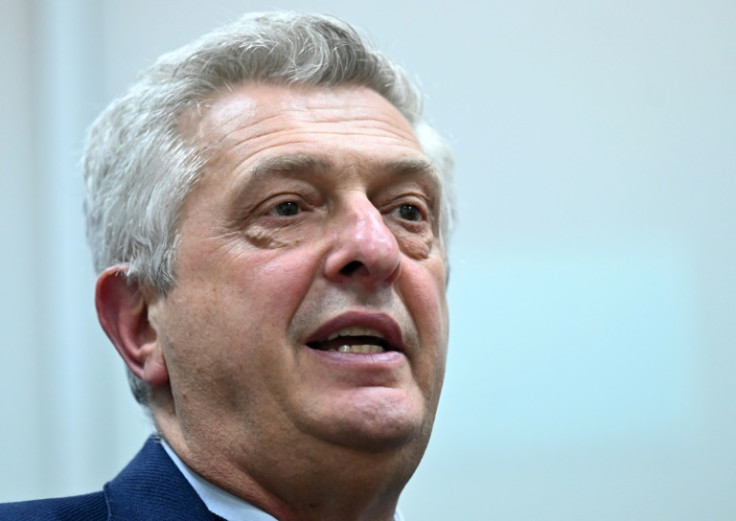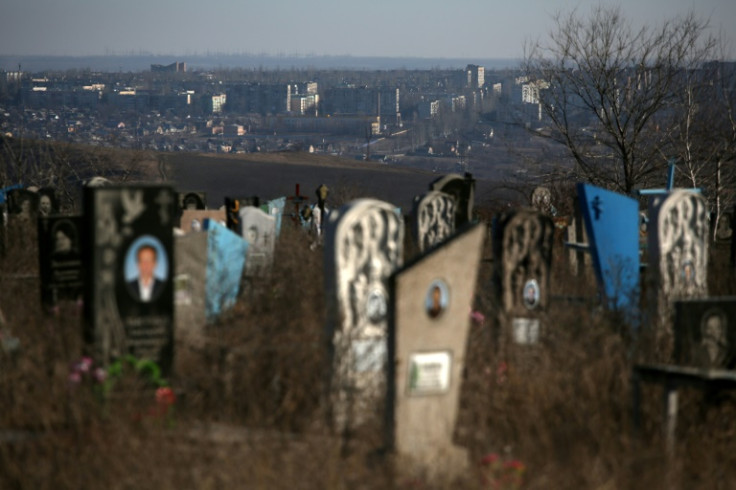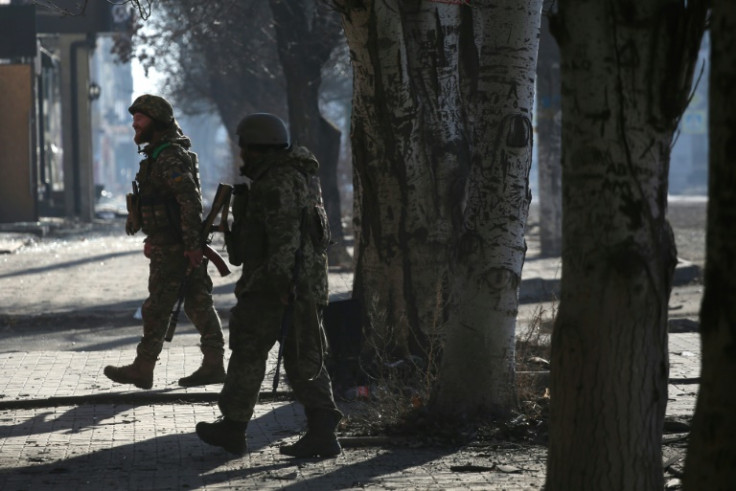'Be Ready': UN Refugee Chief Warns More Will Flee Ukraine Fighting

With Russian forces pushing in eastern Ukraine, the UN's Refugee Agency chief told AFP Thursday that Kyiv and European governments should prepare for a possible wave of people fleeing the fighting.
And he said that, despite repeated offers of assistance, Russia was still only granting the agency limited access to Ukrainians there.
"I cannot make military predictions -- this is not my expertise," the High Commissioner for Refugees Filippo Grandi said in the Ukraine capital.
"But one thing I can say is, of course any exacerbation of war risks causing further displacement, one way or another, and we need to be ready for that.
"As we have seen everywhere, in Mariupol, in Kherson, every time fighting increases, people naturally will try to seek safety," he said, referring to two of the fiercest battles of Russia's nearly year-long invasion of Ukraine.
"We're saying to the Ukrainian government, but also to the governments of neighbouring countries, be ready, be prepared to for any eventuality," he said.
Ukrainian authorities warned this week that Russian forces were intensifying their offensive to capture the embattled town of Bakhmut in the industrial Donetsk region.
AFP journalists in the destroyed town -- now the longest-running battle of the invasion -- saw residents who had so far weathered the fighting, deciding to leave, as Russian forces gained ground.
UNHCR estimates that the fighting since February has pushed early eight million people to flee the country, while another six million have had to quit their homes to other parts of Ukraine.
Russian proxy officials in areas of eastern Ukraine have said that as many as five million Ukrainians left their country for Russia.
Grandi said that while European countries have allowed his organisation to work with those fleeing the conflict, Moscow has not been as receptive.
"In the Russian Federation, we have had very limited requests to help Ukrainians," he said -- and thus little or now way of checking the numbers of people arriving there.
"We have offered -- and we continue to offer -- more assistance, but assistance has to come with access to those people and this has been very sporadic, and very, very limited," Grandi said.
UNHCR requests to access refugees now in Russia -- including unaccompanied minors -- met with "extremely slow responses," he said.
Although Moscow had allowed them access to some temporary accommodation centres, that was only to a "very limited number" of facilities in Russia.
Russian-backed separatists wrested control of parts of eastern Ukraine in 2014, fighting that forced tens of thousands to flee their homes, including to Russia.
But since February last year, when Russia's invasion began and the scale of the displacement ballooned, the authorities there have not become any more receptive to offers of assistance, said Grandi.
"Access has to be unfettered, not controlled. And that has been a challenge," he said.
Being able to meet with refugees freely, he explained, was key to "determine whether people are being treated correctly".
Ukraine has accused Moscow's forces of having forcefully evacuated civilians to Russia from cities such as Mariupol and Kherson, which saw fierce fighting last year.
"To determine that we need unfettered access, otherwise people will not be able to express themselves freely," Grandi added.



© Copyright AFP {{Year}}. All rights reserved.




















